The most important factor in anyone’s arsenal is knowledge. These are my Top 5 Personal Finance Books for Beginners.
It is important to note that these are books on Finance – saving and managing money, not on how to invest that money. Before you can start your investing, you need to have money to invest. The best way to do this is to get your finances in order and these books will help you get in the best financial shape of your life.
My Top 5 personal finance books for beginners
I’ve personally read each of these books and I’ve given an honest opinion below.
1. The Barefoot Investor – Scott Pape
This is one of my personal favourite self-help financial books. Scott is somewhat of an icon in Australia and it shows through the number of followers he has. His book is straight-forward and doesn’t mince words. He follows very simple rules that apply to everyone, no matter the stage of their financial journey.
He acknowledges that you don’t have to cut everything out of your life and live on beans and rice. He provides practical advice and a logical path and what you will need to do in order to succeed in those steps. One of the things I found that worked really well was the concepts of buckets and date nights. The latter being one night a month where you (and your partner) grab some wine, have a nice dinner and talk about your financial situation and how you’re tracking. Two keys things in getting your financial affairs in order are communication and support. The date night helps both of these items
What I liked and disliked about the book The Barefoot Investor
The thing I liked about the book the most is how easy it is to understand. Scott doesn’t use fancy words and actually takes the time to go over what this or that means and gives actual examples of how you can use it in the real world. The process he follows is very simple and logical – you’ll see this formula on 99% of the financial blogs and books out there.
- Short term emergency fund
- Eliminate debt
- 3-6 months of living expenses
- Increase wealth (or something along those lines)
The book isn’t tailored at a single demographic, rather it can be amended to whatever your situation and lifestyle. He does have a book aimed at families and getting their kids involved – which can be bought here.
One aspect that didn’t really appeal to me was that he didn’t really go into eliminating debt to the level that I was after. I felt that I wanted a bit more detail on the types of debt and the different methodologies you can use to eliminate debt.
Overall, it was an excellent read and really reinforced all I have learned in my financial journey.
4.5 out of 5 stars
2. Personal Finance: A Practical Guide – Michael Taillard
Personal Finance: a Practical Guide is a book by economics expert Michael Taillard. Michael Taillard is a researcher and former university economics instructor. His received his PhD in Financial Economics and has degrees in International Economics and International Finance. So the bloke knows his stuff.
I was gifted this book by a relative who was following Michael’s research in financial economics. I found that the book does an excellent job of covering everything you need to know about managing your financial life. Although he does go into some detailed analysis I found that the overall flow and readability for the book inconsistent throughout. It’s full of practical advice on how to get the most out of your money and insight into how to save and earn without sacrificing too much.
He breaks the book into the following pieces
- Make your money work for you by matching your spending and investments to your values
- Control your spending behaviour by gathering and tracking financial information efficiently
- Simplify your financial management by learning to use the right tools effectively
- Realise your savings goals by understanding what you want to and can achieve
One of my favourite chapters was the section on behaviour biases and how they affect our justification for spending and decision making. The information gives great insight into beginners and an even better refresher for those who are looking to reinforce their financial management education.
What I liked and disliked about the book Personal Finance: a Practical Guide
The book presents everything in a clear and logical arrangement. The flow of one chapter to another is seamless and makes for an enjoyable read. It’s hard to find a book that provides good coverage of the numerous financial topics but this book does a great job of it.
This book is more aimed at the beginner to a novice level of financial management understanding so those wanting a more in-depth analysis may have to go elsewhere.
Overall, I really enjoyed this book. It kept me entertained throughout and positively attributed to my thinking and understanding of financial management.
4.25 out of 5 stars
3. Unfuck your finances – Melissa Browne
I think might be biased towards Australian books – Unfuck your finances is a book Mel Browne that dives into the psychological thinking behind our finances and why most of us would rather be caught naked than have our finances open to view.
It looks at why are we so reluctant to engage properly and effectively with something so fundamental in our life. It’s strange to think that we’re so scared of something that we deal with every day of our lives and it controls so much of it. I found that Mel challenges us to change our thinking and our bank balances for the better.
I found the book easy to follow but also didn’t contain any groundbreaking information. One interesting point of view she provides is her guidance on why budgeting is a dirty word. There’s no madeup financial mumbo-jumbo and uses familiar examples to support her theories. It helps you take that next step into adult financial freedom.
What I liked and disliked about the book Unfuck your Finances
The book is definitely easy to follow and relatable to real-world examples. Although a lot of the examples do relate to the Australian situation, it can still be translated to our friends across the sea… or below if you live in the Antarctic. I love the approach in having many chapters – bite-size information which is easy to digest and most importantly easy to move from an intention into action.
One thing that doesn’t bother me in slightest but might catch other people off-guard. This book is predominantly aimed at female readers who want to get financially organised. I think this is fantastic because financial management requires support from those around you. The more support you have the easier it is to succeed in your goals. And if you’re all on the same page, the easier it is to do.
I enjoyed this book and this there is a lot more sensational work from Mel to come in future books
4.25 out of 5 stars
4. The Minimalist Budget – Simeon Lindstrom
These are two words that evoke powerful imagery in your mind. Minimalist – bare, nothing, blank. Budget – rules, restrictions, rationing money, compromise.
For me, budgeting is in the same category as dieting… perhaps budgeting is the money diet. Not everyone loves it, some people don’t need to do it (good genetics/trust funds) others have to try harder to get where they want to go. If you’re like many people, budgeting is something you do with a kind of deflated spirit: budgeting means bargain bin quality and the sad sense that what you want is going to be just out of reach.
I found this book will try a different approach to budgeting altogether. This book offers an expanded notion of what it means to budget. I like how it looks at how money is not the only resource that needs to be managed, and a “life budget” that acknowledges your emotional, behavioural, social and even spiritual capital is more likely to lead to smarter decisions.
No stone is left unturned as you’ll look at shopping and spending habits, identify problem areas, think about debt and make achievable goals for home, work and more.
What I like and dislike about the book The Minimalist Budget
The book appeals to my minimalistic side. I hate clutter, I hate excess things around the house. I’m a simple person with simple needs. This hits the mark on the philosophy of minimalism, not thriftiness. It explains the relationship between yourself and your money which is an interesting angle. The way they were able to depict how it ties into how you want to live, the changes you make will be more authentic and longer lasting.
It can be both good and bad about this book – a lot of people won’t want to go into the philosophical side of things and rather get a firm set of rules to follow but I’ve yet to find a book that caters for everyone and their environment.
4 out 5 stars
5. The Total Money Makeover – Dave Ramsey
There’s a reason why Dave Ramsey is so popular – Simple, straight forward and doesn’t stuff around. He has lived and breathed by these rules his whole life and it has literally paid dividends.
Dave sorts out the bullshit from the facts and provides it in a simple and easy to understand way. He breaks it down into what he calls baby steps. In a similar way to what Scott Pape does in his Barefoot Investor books does.
Dave provides the simplest, most straightforward game plan for completely making over your money habits. And it’s based on results, not pie-in-the-sky fantasies. I like the way it covers a number of categories
- Design a sure-fire plan for paying off all debt-meaning cars, houses, everything
- Personal finance for beginners
- Recognize the 10 most dangerous money myths (these will kill you)
- Secure a big, fat nest egg for emergencies and retirement!
What I liked and disliked about The Total Money Make Over
I liked how Dave tackles other financial problems like marriage conflict, college debt and your own personal demons that hinder your financial journey. I found that the Workbook that goes along with this book really helpful in committing to your goals and writing them down.
He does rant on and on in some sections, so the book does balloon out in some chapters. Dave is also a devout Christian and there are some Christian undertones in his book but you should be adult enough to look past these if you need to. Some might find the logical reasoning to simplistic – don’t use credit to buy anything. I remember reading a review of the book and they said this is what 275pgs is summed up by – Welcome to the Total Money Makeover, don’t buy anything with credit. The End
Overall, it was an insightful read and to see how different countries handle different things like marriage conflict and college tuition is a fantastic read. Personal finance is a different journey for everyone! It definitely helps when looking at your own spending habits and how they affect you and your family/friends.
4 out of 5 stars.
Well, those are my top 5 personal finance books! If you’re interested in purchasing those books, please click on the links and they’ll take you straight to Amazon! Please note that I do have an affiliate account with Amazon so for any purchase, I do receive a small kickback, which helps me to continue running this site and producing the content you love!
If you’re hungry for more, you can check out my financial posts, my investing tips or even dive into online trading with eToro.

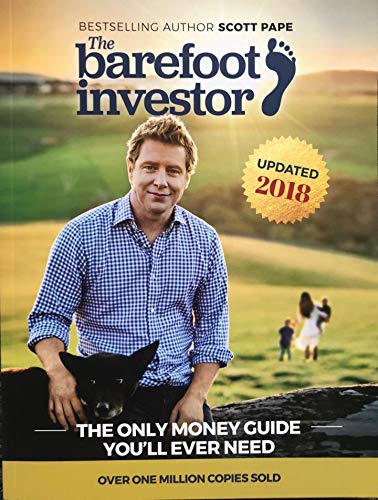
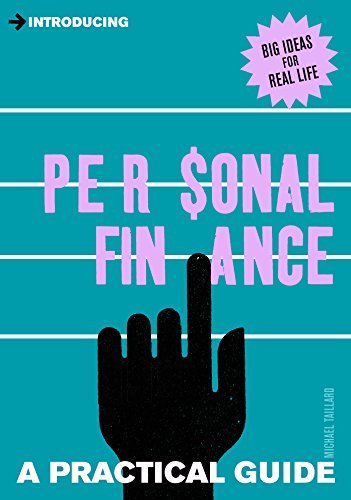
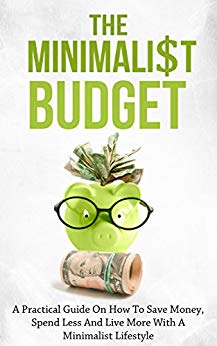
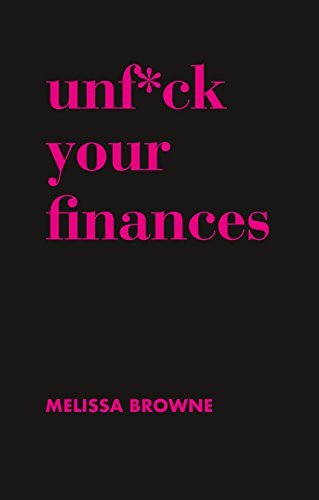
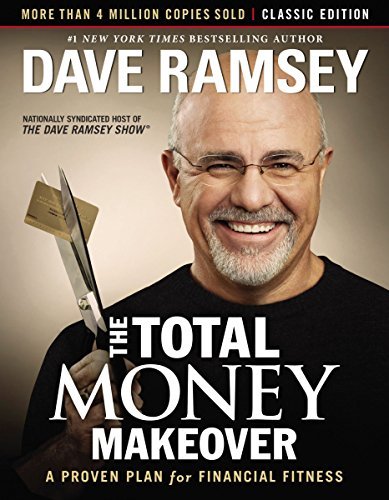
[…] Firstly, you need to invest in yourself. Read books, articles, blogs, chatrooms etc about what you’re interested in. An ordinary person with a plan will succeed far more than a genius without one. One piece of software I’ll really found useful was Simply Wall St. They provide analysis and recommendations on thousands of stocks in a number of markets. Definitely worth checking out. If you’re going to start reading to help with your finances, I recommend looking at these 5 personal finance books for beginners. […]
[…] you’re interested in personal finance, check out my Top Personal Finance Books or get some advice from some of the world’s most successful […]
Wow! I too started with Scott Pape and Dave Ramsey on my active financial journey! Good times and fundamentals.